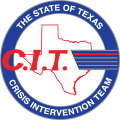Cross Creek Hospital Together With Ascension Seton helps children, adolescents, and adults who are struggling with anxiety through an unmatched quality of care and support. Located in Austin, TX, Cross Creek Hospital Together With Ascension Seton is the leading provider of anxiety treatment.
Understanding Anxiety
Learn about anxiety and mental health disorders
Affecting millions of people in the United States, anxiety disorders are one of the most common mental health disorders that affect the population today. While there are many different types of anxiety disorders, including generalized anxiety disorder, panic disorder, and phobias, all of them share the same core features: fear and worry. When present, anxiety disorders can cause a great deal of distress and upheaval in an individual’s life. In some instances, people with anxiety disorders may begin to avoid certain people or places because they are afraid it could trigger their symptoms. Additionally, school performance, success at work, and personal relationships may all begin to suffer. Finally, it is also not uncommon for someone with anxiety to struggle with depression or to develop a substance abuse problem in an attempt to control all of their symptoms.
However, while these disorders are very disruptive to an individual’s life, they are also relatively easily conditions to treat. Most anxiety disorders respond very well to therapeutic interventions that provide individuals with better coping skills and the confidence to face their fears head on.
Statistics
Anxiety statistics
It is estimated that, each year, 40 million people in the United States will struggle with some sort of impairment as a result of an anxiety disorder and, unfortunately, only 4 million of those individuals seek and receive treatment. Research has indicated that 1 in 8 adolescents are affected by an anxiety disorder and research has also determined that anxiety disorders are just as common among older adults as they are amongst younger adults.
Causes and Risk Factors
Causes and risk factors for anxiety
There can be many reasons why an individual will go on to develop an anxiety disorder. Below is a list of some of the most commonly accepted hypotheses for what can cause an anxiety disorder to develop:
Genetic: It has been widely accepted that anxiety disorders have a genetic influence, meaning that if an individual has a first-degree relative who has been diagnosed with an anxiety disorder, he or she is at a higher risk for developing one as well.
Environmental: It has also been suggested that many life experiences and certain environmental factors have the ability to trigger the development of an anxiety disorder in those who have a genetic predisposition for this group of disorders. For example, experiencing a traumatic event, feeling excessive pressure to excel in school, or being constantly exposed to violence can all potentially trigger anxiety disorders.
Risk Factors:
- Family history of anxiety or other mental health conditions
- Being female
- Enduring abuse or trauma
- Having witnessed traumatic events
- Having a health condition or serious illness
- Inadequate support system
- Inept coping skills
- Low socioeconomic status
- Exposure to chronic stress or violence
- Substance abuse
Signs and Symptoms
Signs and symptoms of anxiety
There are a number of different types of anxiety disorders, which means that the signs and symptoms that may be present when an anxiety disorder is afflicting an individual are going to vary. The following is a list of behavioral, physical, cognitive, and psychosocial symptoms that could indicate that an individual is suffering from an anxiety disorder:
Behavioral symptoms:
- Avoiding certain people, places, or situations
- Procrastination
- Social withdrawal or isolation
- Restlessness
- Pacing
- Exaggerated startle response
- Repetitive or ritualistic behaviors
Physical symptoms:
- Changes in appetite
- Breathing rapidly
- Stomachaches
- Headaches or migraines
- Disturbed sleep
- Increased heart rate
- Sweating
- Trembling
- Feeling weak or tired
- Dizzy feeling
- Frequent urination
- High blood pressure
- Tension in muscles
Cognitive symptoms:
- Ritualistic thinking
- Cyclical thinking
- Unable to make decisions
- Trouble concentrating on anything other than present feelings of worry
- Fleeting ideas
- Memory impairment
- Compulsions
- Racing thoughts
Psychosocial symptoms:
- Feeling detached from surroundings
- Feeling nervous
- Having a sense of impending danger or doom
- Panic
- Feeling powerless
- Feelings of guilt
- Pervasive feelings of nervousness
- Unpredictable mood
- Derealization
Effects
Effects of anxiety
When you have an anxiety disorder, it can do much more than make you worry. Being in a constant state of worry and fear about everyday situations can lead to a number of other mental and physical health conditions. Furthermore, if anxiety and any potential co-occurring disorders are not treated, it can make life even more challenging. The following effects have a high probability of occurring if a person allows symptoms of anxiety to continue:
- Depression
- Trouble sleeping
- Overall poor quality of life
- Poor academic performance
- Substance abuse problems
- Engagement of self-harming behaviors
- Problems with interpersonal relationships
- Divorce
- Social withdrawal or isolation
- Inability to maintain work performance
- Loss of employment
- Suicidal ideations
Co-Occurring Disorders
Anxiety and co-occurring disorders
Individuals who have been diagnosed with an anxiety disorder may also display symptoms of another mental health disorder at the same time. Below is a list of disorders that are known to occur alongside an anxiety disorder
- Posttraumatic stress disorder
- Attention-deficit/hyperactivity disorder
- Eating disorders
- Schizoaffective disorder
- Schizophrenia
- Specific phobias
- Other anxiety disorders
- Depressive disorders
- Bipolar disorder

















